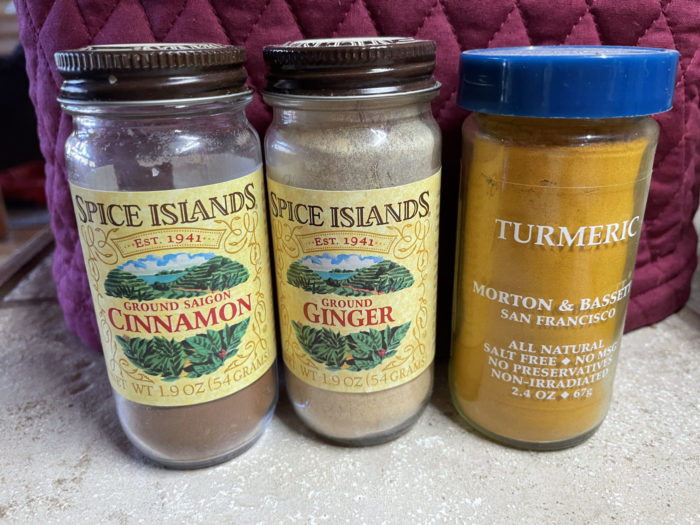I can’t stand fried chicken. I never go to KFC, and at potlucks I’ll avoid it unless there’s nothing else available. Then, I’ll peel off the fried coating so it’s just chicken on my paper plate.
When I was in the 5th grade, my grandparents retired and moved from Arizona to Washington State. Every few months, we’d visit, driving from Seattle to Ocean City, just north of Ocean Shores on the coast.
I loved staying with my grandparents, but getting there wasn’t fun. We always left right after Mom fed us lunch, which was usually fried chicken. Halfway there, I’d get queasy sitting in the back seat of our station wagon. One particularly twisty section of road was the worst; I’d lose my lunch by the side of the road or into a trash bag inside the car.
As an adult, I experienced air sickness, and sea sickness as well. One day, I discovered that ginger root might help. I tracked down candied ginger root in the spice section of my local grocery, and after measuring out the suggested dose, I took some an hour before my next road trip.
What a difference! My head didn’t pound, and my stomach didn’t churn, even while riding in the back seat of cars or the middle seat of an airplane.
Then, one Christmas Eve, the airport was crazy busy and I almost missed my flight. In the panic, I forgot to take my dose of ginger. I assumed everything would be fine, until a bumpy final approach to the airport at Dayton, Ohio. Staggering off the plane feeling four shades of green, I raced for the nearest restroom. Finally arriving at my in-laws, I spent the rest of the day in bed.
Cinnamon, ginger, and turmeric are spices with additional medicinal properties. Although some people seem to experience benefits from these natural products, many others do not. How can you tell if they are helping you?
When your doctor gives a prescription medicine to try to lower your blood sugar, he or she will have a way to decide how you respond to it. You may poke your finger to measure your blood sugar. If your blood sugar levels don’t show any change, then another approach is needed. You may get a higher dose or a different medicine.
Not everyone who takes a medicine, food supplement or herbal product responds to it. Unfortunately, we can’t predict who will get a benefit and who won’t. An herbal product may have dozens of glowing testimonials, but in the end, each of us responds to it in our own way.
To figure out if a supplement is helping you, document your results. Before you start, write down how you feel before you take the first dose, then at regular periods afterward. When assessing the impact of a medication or supplement, trying to remember exactly how you felt a week ago is not as helpful as documenting it in writing both before and after you start it.
In the words of a Chinese proverb, “The palest ink is better than the best memory.”
I experienced dramatic improvement in my motion sickness symptoms with ginger, despite current evidence showing ginger is not very effective at relieving motion sickness.
Clove oil has been used as a dental analgesic and antiseptic for decades. I think the hint of clove is part of what gives dental offices their distinctive smell.
Pure Cassia cinnamon has been shown to lower blood sugar by up to 25 points, and turmeric may help your knee pain. But there’s no guarantee.
Here are 5 steps to help determine if a supplement works for you:
- Decide which symptoms you hope will improve.
Answer the question, “If this was helping you, how would you know?” What exactly do you expect it to do? Relieve pain? Increase your energy? Lose weight?
- Create a BEFORE and AFTER scoring system.
Before you take the first dose, score yourself on how you are doing on each symptom. If you want increased energy, score your energy level on a scale of 1 to 5 or 1 to 10.
- Start your new supplement.
- Score yourself.
Every week, notice how you are doing on each symptom and record it in your symptom diary.
- Evaluate your progress.
Check your before and after scores to see if there are any changes to your symptoms after starting the supplement. After six to eight weeks, if there isn’t any measurable difference, stop it and try something else.


